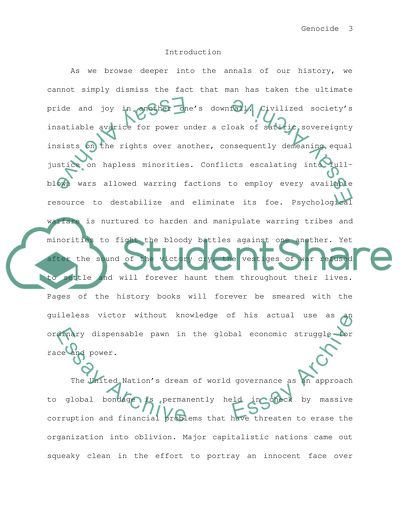Cite this document
(“Genocide in Rwanda Essay Example | Topics and Well Written Essays - 3500 words”, n.d.)
Retrieved from https://studentshare.org/politics/1528143-genocide-in-rwanda
Retrieved from https://studentshare.org/politics/1528143-genocide-in-rwanda
(Genocide in Rwanda Essay Example | Topics and Well Written Essays - 3500 Words)
https://studentshare.org/politics/1528143-genocide-in-rwanda.
https://studentshare.org/politics/1528143-genocide-in-rwanda.
“Genocide in Rwanda Essay Example | Topics and Well Written Essays - 3500 Words”, n.d. https://studentshare.org/politics/1528143-genocide-in-rwanda.


